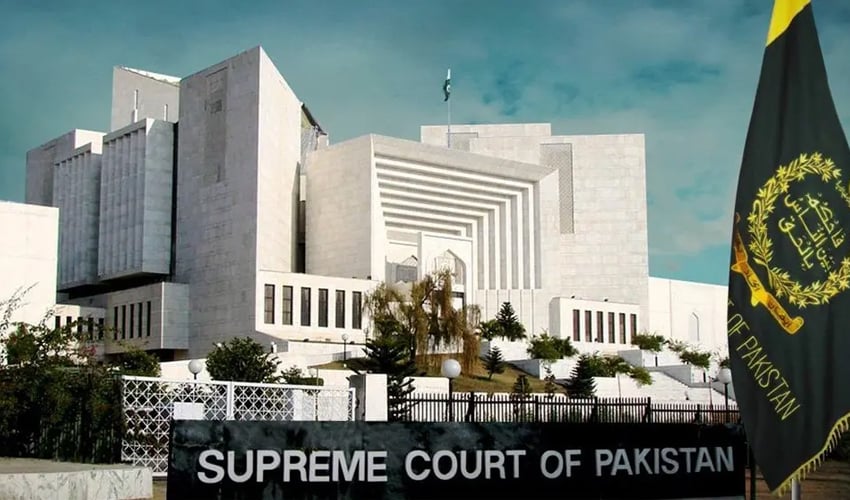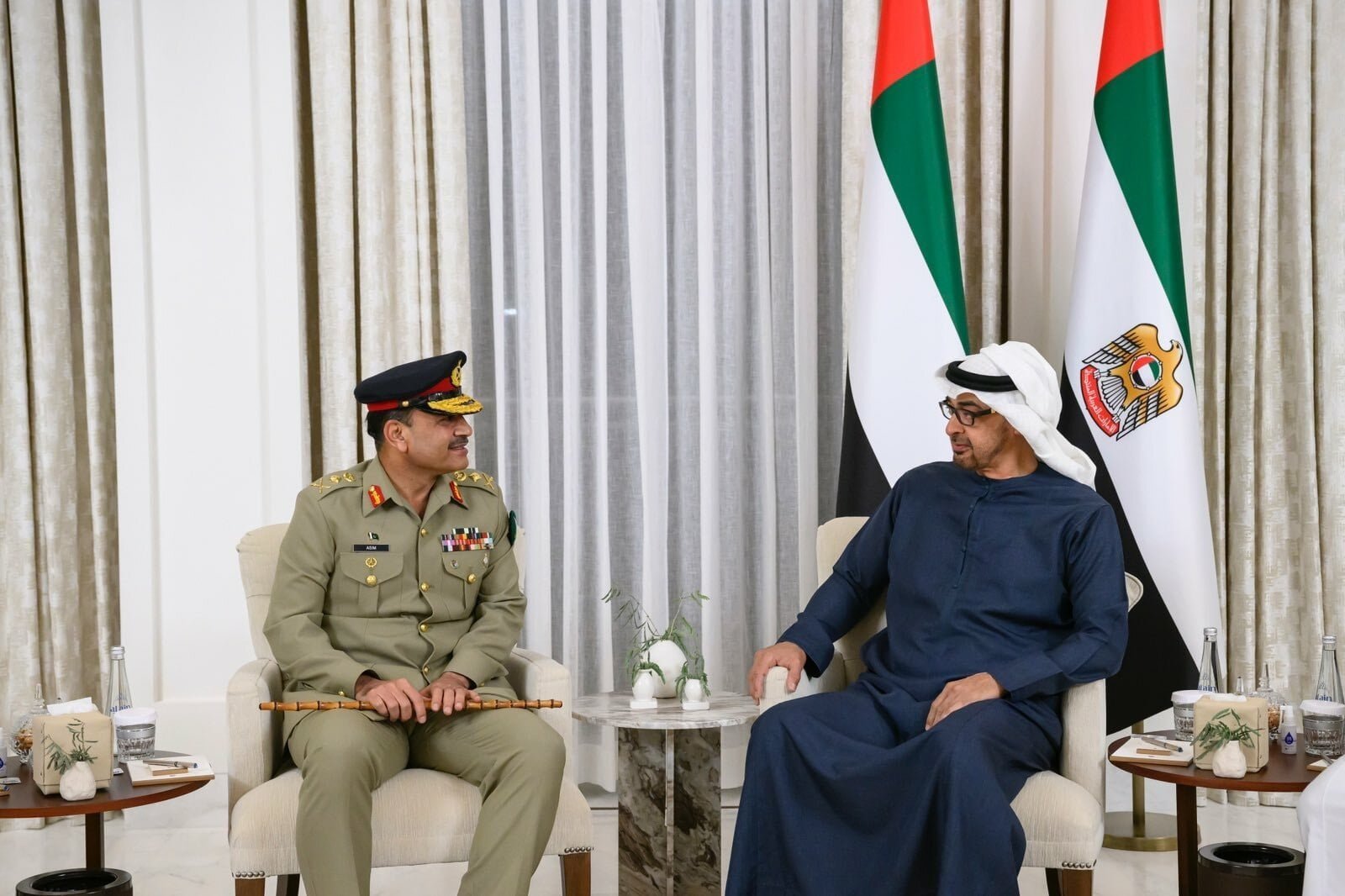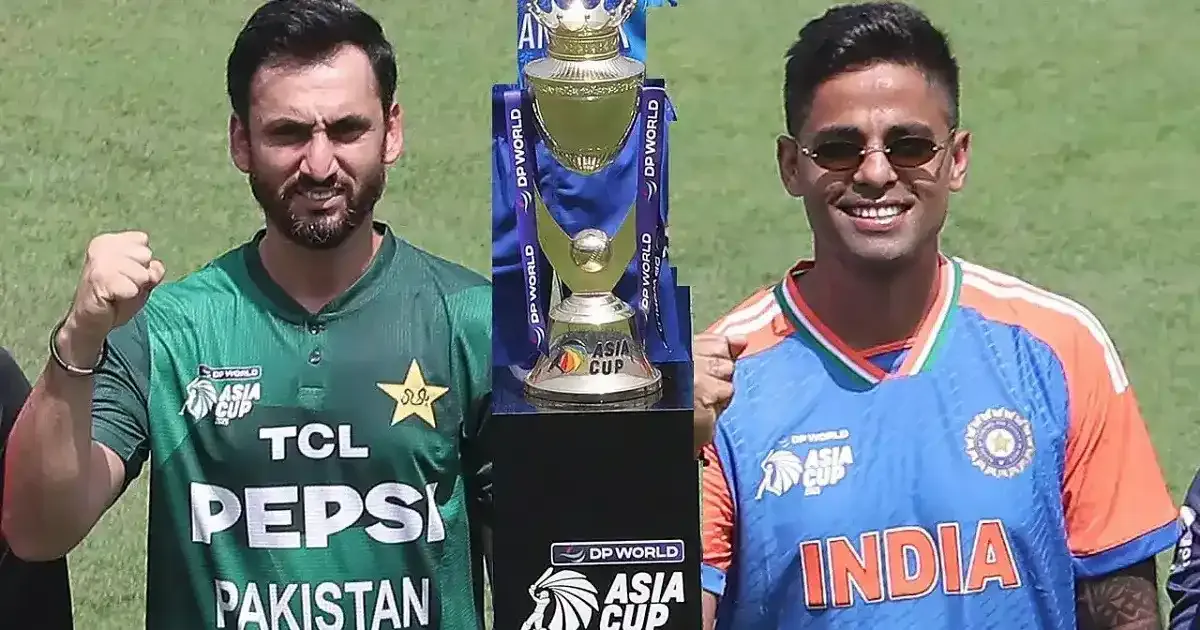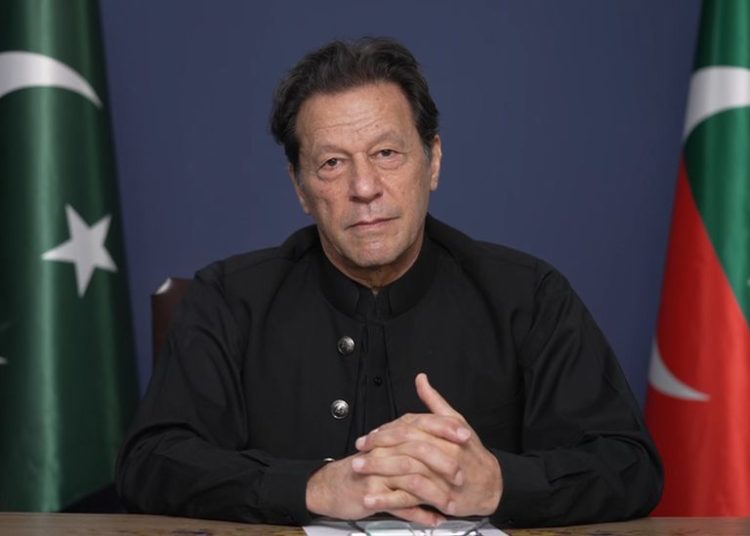Islamabad: The Supreme Court’s Constitutional Bench (CB) has been urged to consider the intra-court appeals (ICAs) on the military trial of civilians as review petitions rather than fresh appeals against the October 2023 ruling. The argument, presented by Advocate Uzair Karamat Bhandari on behalf of PTI founder Imran Khan, suggests that the bench should focus on correcting potential errors rather than taking a different stance from the five-judge bench that previously ruled on the matter.
Bhandari emphasized before the seven-member bench on Wednesday that the ICAs should be limited to identifying any legal or factual mistakes in the earlier judgment. He argued that unless there was a significant legal oversight, such as ignoring admitted facts or committing a fundamental legal error, the CB should not deviate from the prior ruling.
The bench, headed by Justice Aminuddin Khan, was hearing appeals against the Supreme Court’s October 2023 decision that nullified the military trials of civilians involved in the May 9 violence.
Justice Jamal Khan Mandokhail, in a light-hearted exchange, suggested adding the word “young” when Bhandari described the judges as having “fresh minds” while reviewing the case. Meanwhile, Justice Muhammad Ali Mazhar asked what parameters should be set for modifying an earlier ruling, stressing that previous decisions could not simply be overturned without valid justification.
Justice Aminuddin Khan also raised concerns, questioning whether the current bench had the authority to overturn the opinion of the five-judge bench that ruled in October 2023.
Bhandari argued that under Article 245 of the Constitution, the armed forces are part of the executive and should not have judicial authority over civilians. He maintained that military trials of civilians fell outside the legal scope defined by the Constitution.
Separately, Advocate Sardar Latif Khosa, representing Barrister Aitzaz Ahsan, called for a judicial commission to investigate why law enforcement agencies did not intervene to stop the May 9 riots, which lasted for several hours. Khosa suggested that a probe could determine whether the events were orchestrated and why only 105 individuals—out of 5,000 arrested—were subjected to military trials.
Justice Musarrat Hilali questioned whether the police should have used force, potentially leading to casualties, while Khosa criticized the government’s reluctance to uncover the full facts.
Khosa cited an International Commission of Jurists (ICJ) report, which claimed that 646 civilian trials had been conducted in military courts, with 641 resulting in convictions and 345 death sentences. However, Justice Syed Hasan Azhar Rizvi pointed out that Pakistan has faced terrorism more extensively than many other nations, questioning the relevance of ICJ comparisons.
Justice Mandokhail advised against relying on ICJ reports when discussing constitutional amendments and ongoing appeals, while Justice Mazhar asked whether Parliament had ever formally considered such reports.
Khosa argued that the use of military courts should be viewed in a historical context, asserting that Islamic principles emphasize an independent judiciary. However, Justice Mandokhail challenged him, questioning why he had not pushed for the abolition of controversial sections of the Pakistan Army Act during his political career.
In a notable moment, Barrister Aitzaz Ahsan distanced himself from his lawyer, Advocate Salman Akram Raja, who had raised concerns over certain aspects of Justice Munib Akhtar’s October 2023 ruling. Ahsan clarified that Raja had not been authorized to express such reservations on his behalf and reiterated his full support for Justice Akhtar’s decision.
Raja, in response, maintained that his arguments were presented on behalf of his own client, Arzam Junaid, and that he had only disagreed with a single paragraph of Justice Akhtar’s verdict.
The Supreme Court’s Constitutional Bench continues to deliberate the scope of the ICAs, a decision that could have lasting implications on military trials and the judiciary’s role in overseeing executive actions. The proceedings have highlighted key constitutional questions, particularly the balance of power between the judiciary and the military.
















